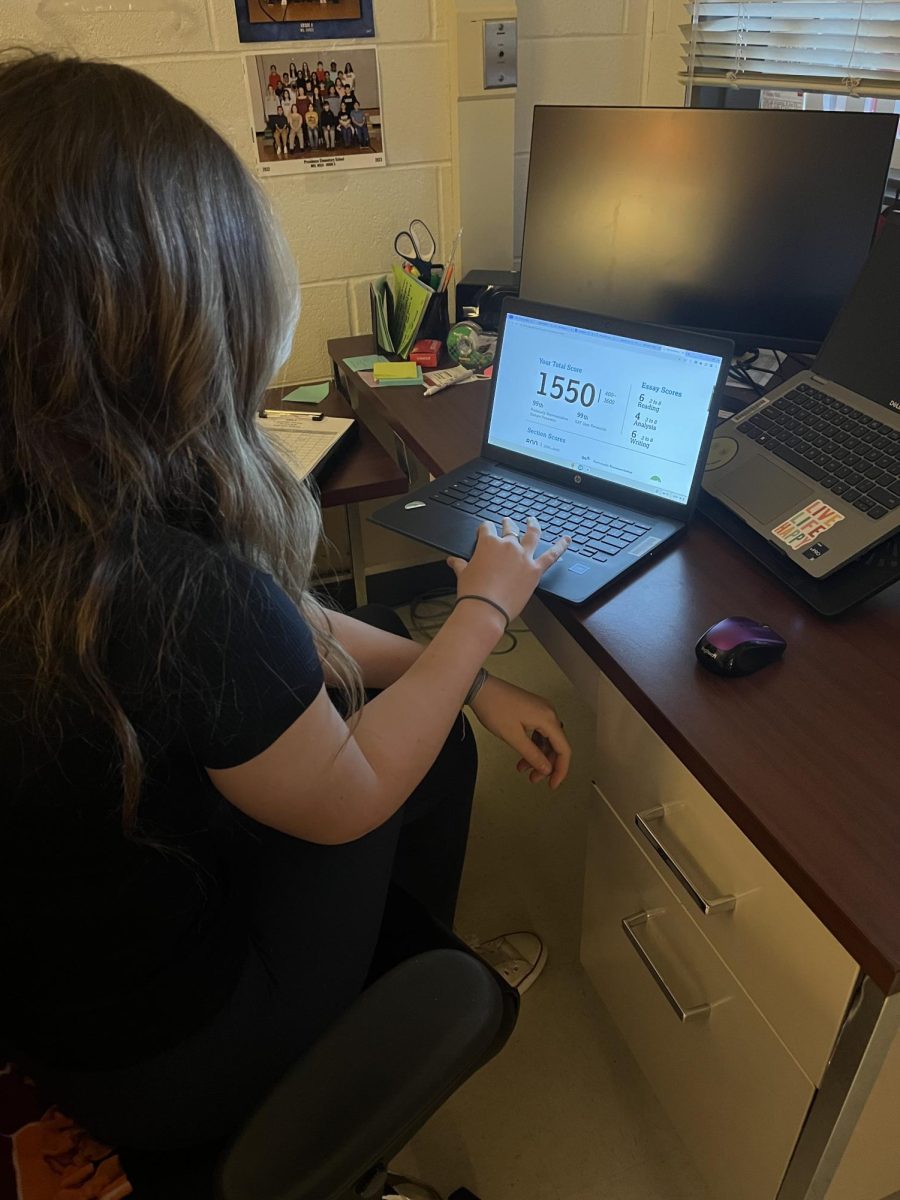I waited four weeks for a test to be graded and put into the gradebook. Turns out I needed a retake, scheduled two days later. Those next two nights I put aside my other homework and spent my nights reteaching myself the unit I had already mostly forgotten.
We were busy moving on with the next unit, and I had forgotten all about the content covered a month ago. I arrived for my retake right before winter break, and got my score at the end of January. Roughly another month (not including break), it took to get my retake.
So, is it just me, or are other students experiencing the same thing? And what do teachers have to say about grade turnover?
In the age of 24/7 grade book access, students often find themselves obsessing over when their grades will be put into the FCPS grading system, or, Student Information System (SIS). Students work hard to meet their deadlines, so why should they have to wait weeks for a grade back on an exam?
Does this constant access to grades lead to obsession over grade turnover?
“I feel like seeing them earlier would benefit me more,” said senior Rahaf Bahr. “Then I know how it affects my grade and I also have the materials fresh in my mind rather than seeing them two weeks later.”
Of course, it’s not reasonable to expect every grade to immediately be entered. Teachers are human too, after all. A little slack can be cut.
“First thing that I’ve learned since this is my eighth year teaching, I try to avoid grading on the weekends,” said IB Geography and Psychology teacher Kim Falvey. “It was something I did a lot when I first started teaching, and I’ve realized boundaries are really important and sometimes that might mean I don’t get something back the week off, but that I am mentally okay. I think that’s really hard for first year teachers.”
Teachers have many responsibilities out side of their classroom that impact their grading schedules.
“Teachers within the school are involved in so many things, from clubs to activities to sports to taking on new leadership roles, and there can be not a ton of time in the day to balance that out,” Falvey said. “In addition to that, a lot of teachers work multiple jobs, which is why I try to set the boundaries of not doing a lot of work at home.”
Students understand this, too. Many students work hard to get things done on time, but sometimes life happens and something ends up late. Teachers especially are understanding of this, within reason. As long as both parties make an effort to complete what is asked of them.
“It’s hypocritical because sometimes I wait until the last minute to do an assignment, so it’s like a double standard,” said senior Abem Alemu.
Each class is different in content and assessments, so really no two classes can be equally standardized in grading processes.
English requires reading through hundreds of essays, science is checking problems and concepts, or math just checking right or wrong. Teachers can approach grading in different ways and give feedback differently.
“My math teacher grades super fast, my English teacher does [too],” Bahr said. “My physics teacher does not. My geography teacher, sometimes.”
“I try to grade it as soon as I get it, especially if it’s a big test or quiz,” said Algebra 2 teacher Jarrett Cowgill. “I try to give it back the next class period, which gives me two days to do it.”
“For me especially with longer tests and being IB, I grade question by question throughout all of [the tests], so I’ll do the whole first page of my IB tests, for all of my questions,” Falvey said. “It helps me just focus on those questions and stay the most present and recognize those patterns.”
Students rely on SIS, as it is the only way to see where they stand in their courses. But assignment completion isn’t the key to learning. There are other indicators for student progress and achievement. Numbers are not everything, although they mean a lot to many people.
“I feel like SIS and missing assignments are not the best benchmarks to know your success in the class or not,” said senior Crystina Ing. “There’s more than just completion of an assignment. If I’m in class, participating in the reading or in the discussion, that’s also strengthening me but not just completing an assignment. I see it that way.”
“I use it to see where I’m at. I use it as a tool to see how I can increase my grade,” Alemu said.
Try not to forget that teachers were once students, too. They know the pain of waiting for the results of a test they studied days and days for.
And, let’s be honest, most of them didn’t have constant access to a grade book, or a rolling grade book, or the same retake opportunities we have, not that they’re old! Young chickens!
“I hated it when I was a kid: waiting weeks for my teacher to grade a test, so I try to sympathize with that,” Cowgill said.
Communication between teachers and students is an important part of grading. Creating open lines of communication is crucial to success. Creating an environment for students to be comfortable asking questions and advocating for themselves is helpful.
“I think a big part is just building the relationships and kids understanding that we are people too and that we’ve got a lot on our plates whether it is new life experiences, family, jobs, things that we can’t share with kids,” Falvey said.
If you are unhappy with your teacher’s grade turnover, try reaching out and have a conversation with them about their grading approach and how each of you can better help the other.
Using a combination of communication directly from teachers and online SIS profiles can help students stay on top of their grades and make sure they’re not behind.
Teacher’s grading is always going to vary, but as long as the ultimate goal is to help and teach students, then you’ll be okay.










